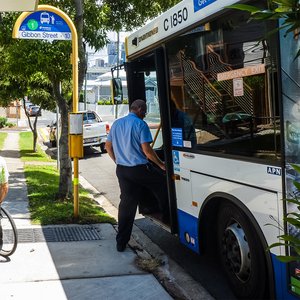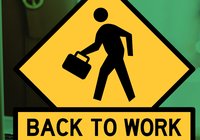| Phrasal verb | Main meaning |
|---|---|
get on [ɡet ɒn] | to enter or board (a bus, train, plane, etc.) |
Other meanings
- to have a good relationship (with someone)
- to continue doing something
- to manage or succeed in life
- to get older
Example Sentences Using the Phrasal Verb "get on"
- I usually get on the bus at 7 a.m.
- Do you get on with your colleagues?
- Let’s get on with the presentation.
- She’s getting on in years, but still very active.
Features of Using "get on"
Separability:Optionally separable
Transitivity:Transitive and Intransitive
Level:A2
Verb:get
Particle:on
- Get on is multi-meaning and context-dependent.
- Used both literally and idiomatically.
- In UK English, more common than in US English.
- “Get on with” = have a good relationship or resume something.
- Inseparability depends on the specific meaning.
Other phrasal verbs with the verb get
get up
to rise from bed
get back
return to a place or return something
get in
to enter (a place, vehicle, or situation)
get out
to leave or escape from a place
get over
to recover from (illness, loss, shock)
get down
to lower yourself or move to a lower position
get off
to leave (a bus, train, plane)
get through
to finish or survive something difficult
get away
to escape or leave from somewhere or someone
get by
survive or manage with difficulty
get along with
have a good relationship with someone
get into
to enter (a place, vehicle, or situation)
get behind
fail to do something on time
get across
to successfully communicate an idea
🔗 Learn more about the irregular verb get, including its forms and usage.















